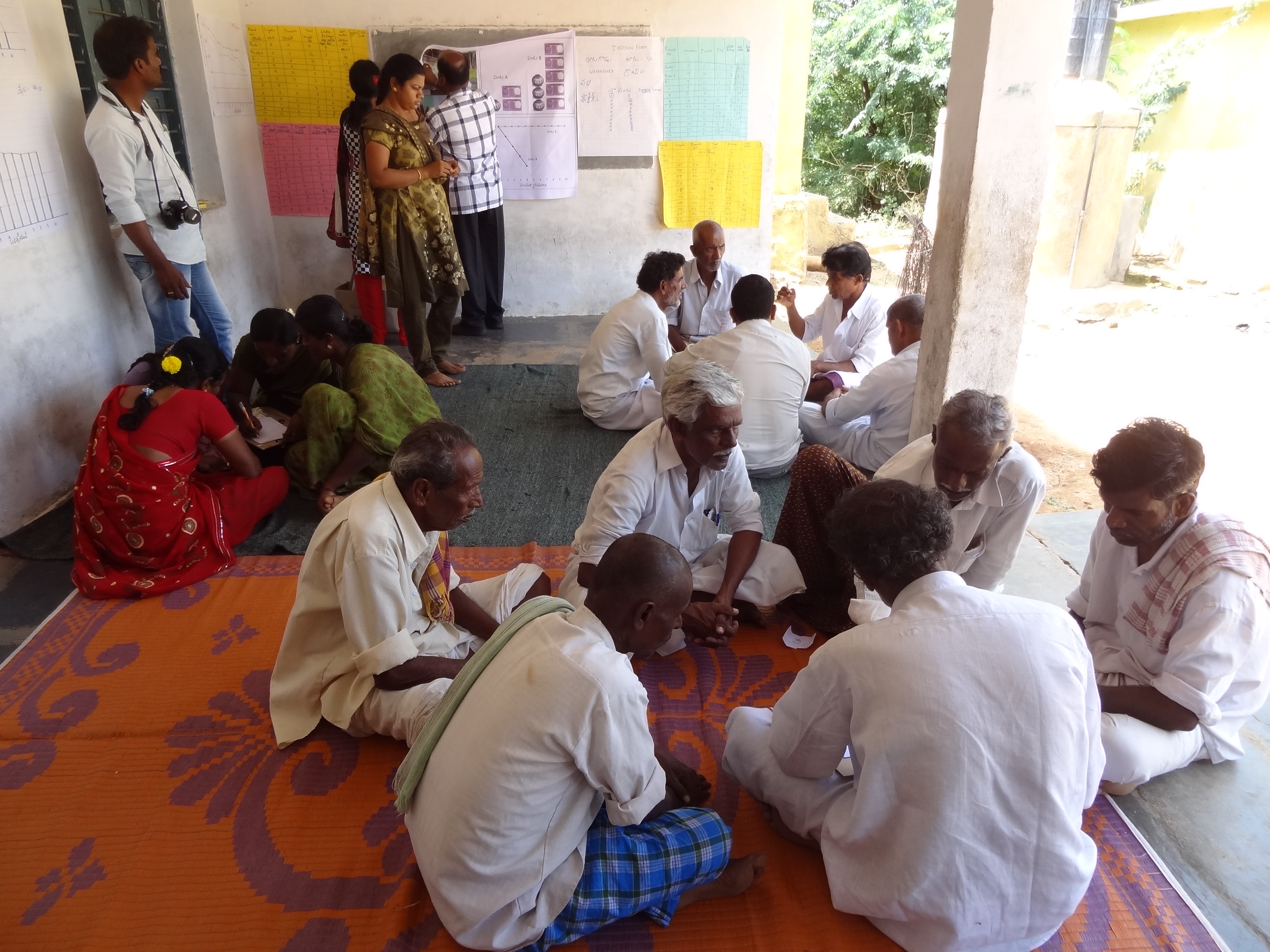World Water Day (March 22) promotes the sustainable management of freshwater resources. Water is a vital and shared but also limited resource, and ensuring sufficient access for all users requires cooperation and coordination. But this can be quite difficult to achieve.
IFPRI has played a key role in developing innovative experimental water cooperation games—based on earlier game templates used to measure and test theories of collective action—to increase awareness of the challenges surrounding freshwater use and to encourage a cooperative approach. Results show the games can help communities improve their management of groundwater resources.
One of the greatest water management challenges is overuse, which causes water tables to fall. In India, where more than 60 percent of irrigation and more than 85 percent of domestic water use comes from groundwater, about half of all wells show falling water tables. Because people cannot see what’s happening underground, and have a limited understanding of the factors that affect water tables, curtailing overuse is difficult.
In 2013-2015, IFPRI, in collaboration with Arizona State University (ASU), the Foundation for Ecological Security (FES) in India, and La Universidad de los Andes in Colombia, conducted a research project under the CGIAR Research Program on Water, Land and Ecosystems (WLE). One hundred eighty water users from 18 villages in Andhra Pradesh, India, participated in experimental games simulating the links between the crops they grow and declining groundwater levels.
Results from the experiment and subsequent discussions at community workshops (described in the paper “Games for groundwater governance: field experiments in Andhra Pradesh, India”) helped communities understand how growing crops that required a lot of groundwater during the dry season led to declining water tables. Follow-on research found that villages that played the game were more likely than other villages to conduct inventories of their water sources and adopt rules limiting the use of groundwater for irrigation in the dry season. These innovative games helped communities understand the connection between individual use and changes in collective water availability and empowered the groups to take remedial actions.
This successful outcome has led FES to adopt experimental games as a community facilitation tool in the National Bank for Agriculture and Rural Development Hydrology Project, and the HUF Project on Water Commons that covers 700 communities in five states. FES is now working with ASU and IFPRI to develop new games for other commons that can potentially reach 7,000 villages. Moreover, after the games were presented at a workshop with the Central Groundwater Board of India, plans are in place to expand training on using the games as an entry point to enhance groundwater stewardship in other parts of India as well.
Janna de la Paz is an IFPRI Program Analyst; Ruth Meinzen-Dick is a Senior Research Fellow in IFPRI’s Environment and Production Technology Division. A version of this post first appeared on IFPRI’s Outcome Stories blog; to view/download/print a PDF of that post, click here.







